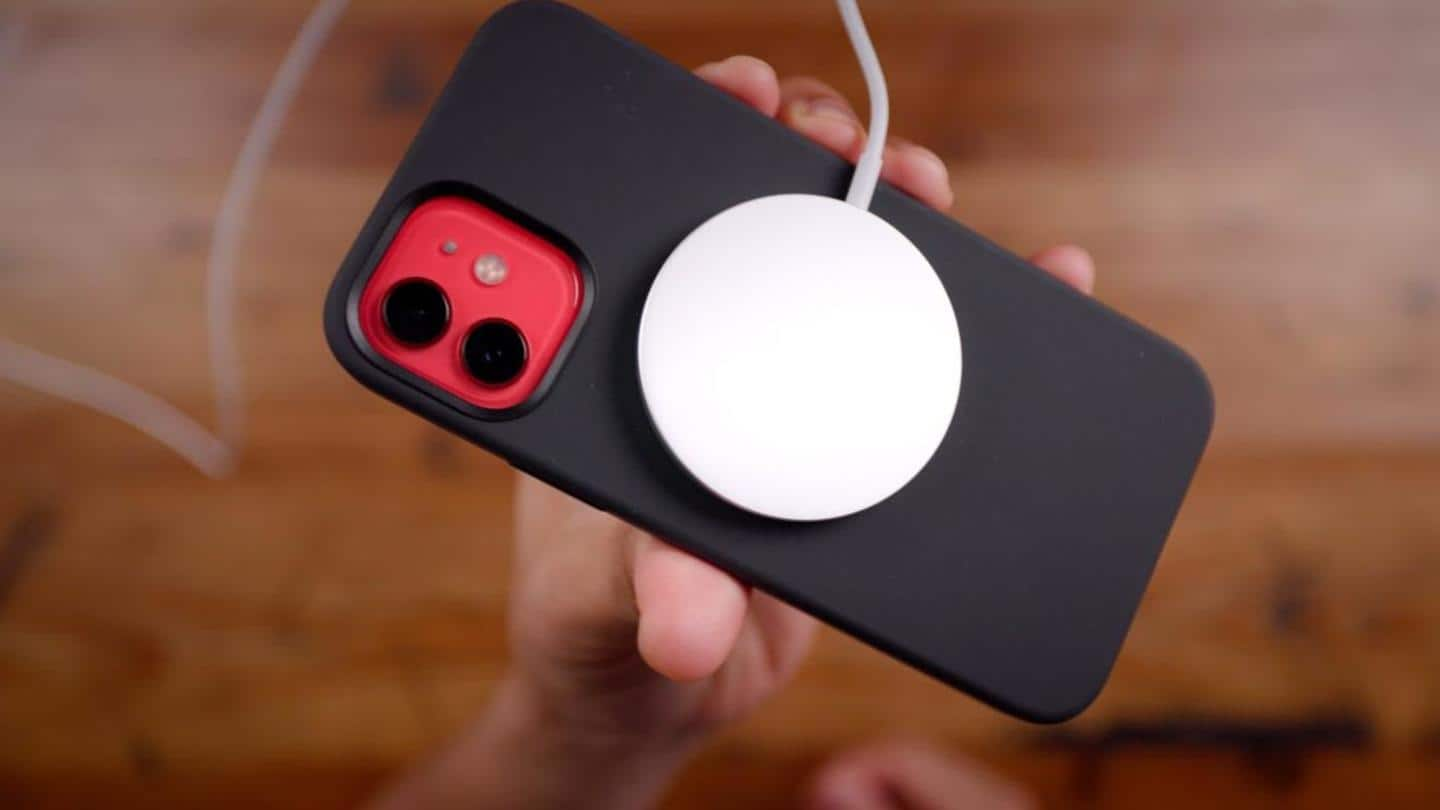Apple granted patent for connector which could replace lightning ports
What's the story
Since MagSafe launched last year, rumors have been circulating that Apple could let go the charging port on iPhones for the iPhone 13 Pro Max this year.
However, a new patent document spotted by Patently Apple suggests that Apple may not ditch the charging port entirely, but it might see a significant redesign including the use of magnetic connectors.
Dust-free design
Connector could be used to hook-up charger and smart devices
The US Patent and Trademark office granted the smartphone manufacturer a patent that details various smart connectors for chargers and smart accessories. The patent application was filed on April 10, 2018.
One of the diagrams resembled the three-hole connector used in the iPad to connect it to Apple's Smart Keyboard.
Other diagrams detail connectors that are dust-free and won't accumulate pocket lint.
Magnetically secured
New connector and port combination shown in sketches
The new connector's design features four semicircular prongs which protrude from the plug. Magnets are placed between the prongs to attach to a tiny-bathtub shaped port on the iPhone.
This means the magnets are responsible for keeping the charging cable connected to the phone. The bathtub-shaped phone port will be easier to clean than a lightning port as it lacks deep crevices.
Portless iPhone 13
Conflicting reports observed from reputed Apple analyst
However, a while ago reputed Apple analyst Ming-Chi Kuo had reported that Apple plans to make the iPhone 13 completely devoid of ports.
More recently, an Apple investor note shared by Kuo suggested the company may keep their Lightning connectors and not go portless.
Considering such wildly contradictory reports from the same analyst, it is open to debate which path Apple would take.
No promises
Apple could have developed superior tech since the patent filing
Speaking of wireless charging in general, most of Apple's portable electronics product line-up has shifted to wireless charging right from the Apple Watch to the iPhone, with some devices being MagSafe compatible.
However, the patent grant alone doesn't confirm the feature's deployment on production-specific devices.
The application was filed in 2018, and Apple could have developed something superior in the meantime.
